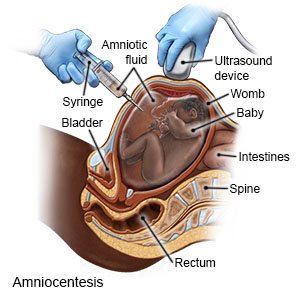Congenital Cytomegalovirus
Medically reviewed by Drugs.com. Last updated on Apr 6, 2025.
What is congenital cytomegalovirus (CMV)?
CMV is a viral infection that your child gets before birth. CMV is passed from an infected mother through the placenta to her unborn baby. CMV can be harmful to an unborn baby and lead to severe health problems. A CMV infection increases your baby's risk for hearing or vision problems. A CMV infection may also increase your child's risk for birth defects and learning or development problems.
What are the signs of congenital CMV?
Most babies who are born with a CMV infection do not have any signs of the infection. In some cases, your baby may have the following:
- Jaundice (yellowing of the skin)
- Red or purple spots on his or her skin
- An enlarged liver or spleen after he or she is born
How is CMV diagnosed?
- Blood, urine, saliva, or cerebral spinal fluid may be tested for infection with CMV. You may have your blood tested before your baby is born or your baby may be tested after delivery.
- An ultrasound may show problems with your unborn baby or the placenta.
- Amniocentesis may be done if there are problems seen on ultrasound. An amniocentesis is a procedure to remove a small amount of amniotic fluid. The amniotic fluid will be tested for CMV.

How is CMV treated?
There is no cure for CMV.
- Antiviral medicines are given to treat the CMV infection. Early treatment for your baby may decrease his or her risk for hearing loss or problems with brain development.
Treatment options
The following list of medications are related to or used in the treatment of this condition.
Call your local emergency number (911 in the US) if:
- Your baby has difficulty breathing.
- Your baby has a seizure.
When should I seek immediate care?
- Your baby has new or worsening jaundice.
- Your baby has a red or purple spots on his or her skin.
- Your baby has abdominal swelling.
- Your baby does not respond normally to sound.
When should I call my child's doctor?
- Your baby has a fever or a cough.
- Your baby vomits, has diarrhea, or will not eat.
- You have questions or concerns about your child's condition or care.
Care Agreement
You have the right to help plan your child's care. Learn about your child's health condition and how it may be treated. Discuss treatment options with your child's healthcare providers to decide what care you want for your child. The above information is an educational aid only. It is not intended as medical advice for individual conditions or treatments. Talk to your doctor, nurse or pharmacist before following any medical regimen to see if it is safe and effective for you.© Copyright Merative 2025 Information is for End User's use only and may not be sold, redistributed or otherwise used for commercial purposes.
Learn more about Congenital Cytomegalovirus
Treatment options
Care guides
Further information
Always consult your healthcare provider to ensure the information displayed on this page applies to your personal circumstances.
